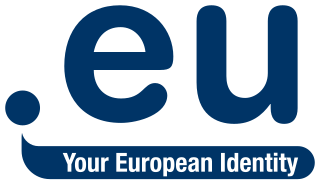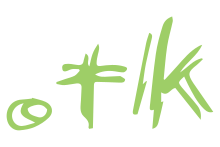
The Internet Corporation for Assigned Names and Numbers is a global multistakeholder group and nonprofit organization headquartered in the United States responsible for coordinating the maintenance and procedures of several databases related to the namespaces and numerical spaces of the Internet, ensuring the Internet's stable and secure operation. ICANN performs the actual technical maintenance work of the Central Internet Address pools and DNS root zone registries pursuant to the Internet Assigned Numbers Authority (IANA) function contract. The contract regarding the IANA stewardship functions between ICANN and the National Telecommunications and Information Administration (NTIA) of the United States Department of Commerce ended on October 1, 2016, formally transitioning the functions to the global multistakeholder community.

In the Internet, a domain name is a string that identifies a realm of administrative autonomy, authority or control. Domain names are often used to identify services provided through the Internet, such as websites, email services and more. Domain names are used in various networking contexts and for application-specific naming and addressing purposes. In general, a domain name identifies a network domain or an Internet Protocol (IP) resource, such as a personal computer used to access the Internet, or a server computer.

.eu is the country code top-level domain (ccTLD) for the European Union (EU). Launched on 7 December 2005, the domain is available for any person, company or organization based in the European Union. This was extended to the European Economic Area in 2014, after the regulation was incorporated into the EEA Agreement, and hence is also available for any person, company or organization based in Iceland, Liechtenstein and Norway. The TLD is administered by EURid, a consortium originally consisting of the national ccTLD registry operators of Belgium, Sweden, and Italy, joined later by the national registry operator of the Czech Republic. Trademark owners were able to submit registrations through a sunrise period, in an effort to prevent cybersquatting. Full registration started on 7 April 2006.
Domain hijacking or domain theft is the act of changing the registration of a domain name without the permission of its original registrant, or by abuse of privileges on domain hosting and registrar software systems.
A domain name registrar is a company that manages the reservation of Internet domain names. A domain name registrar must be accredited by a generic top-level domain (gTLD) registry or a country code top-level domain (ccTLD) registry. A registrar operates in accordance with the guidelines of the designated domain name registries.
A domain name scam is a type of intellectual property scams or confidence scam in which unscrupulous domain name registrars attempt to generate revenue by tricking businesses into buying, selling, listing or converting a domain name. The Office of Fair Trading in the United Kingdom has outlined two types of domain name scams which are "Domain name registration scams" and "Domain name renewal scams".

Domain name speculation, popular as domain investing, domain flipping or domaining in professional jargon, is the practice of identifying and registering or acquiring generic Internet domain names as an investment with the intent of selling them later for a profit.

.nu is the Internet country code top-level domain (ccTLD) assigned to the island state of Niue. It was one of the first ccTLDs to be marketed to the Internet at large as an alternative to the gTLDs .com, .net, and .org. Playing on the phonetic similarity between nu and new in English, and the fact that nu means "now" in several northern European languages, it was promoted as a new TLD with an abundance of good domain names available. The .nu domain is now controlled by the Internet Foundation in Sweden amid opposition from the government of Niue.

On the Internet, .cc is the country code top-level domain (ccTLD) for the Cocos (Keeling) Islands, an Australian territory. It is administered by a United States company, VeriSign, through a subsidiary company, eNIC, which promotes it for international registration as "the next .com". The .cc domain was originally assigned to eNIC in October 1997 by the IANA; eNIC manages the TLD alongside SamsDirect Internet.

.cf is the Internet country code top-level domain (ccTLD) for the Central African Republic. It is administered by the Central African Society of Telecommunications.

.uz is the Internet country code top-level domain (ccTLD) for Uzbekistan. Registry services were formerly operated by Euracom GmBH, but were later redelegated to UZINFOCOM. Registrations are taken directly at the second level, but the former registry also advertised the availability of registrations at the third level beneath co.uz and com.uz, and some domain names under other second-level names such as org.uz also exist.

.gq is the country code top-level domain (ccTLD) for Equatorial Guinea. Freenom relaunched the TLD on October 1, 2014, and domains became available for free on January 1, 2015. Following Freenom's lawsuit with Meta and its settlement in 2024, it is unclear who will take up registration of the domain, as the company announced it would be exiting the domain business.

.pw is the country code top-level domain for the Republic of Palau.
WHOIS is a query and response protocol that is used for querying databases that store an Internet resource's registered users or assignees. These resources include domain names, IP address blocks and autonomous systems, but it is also used for a wider range of other information. The protocol stores and delivers database content in a human-readable format. The current iteration of the WHOIS protocol was drafted by the Internet Society, and is documented in RFC 3912.
Domain tasting is the practice of temporarily registering a domain under the five-day Add Grace Period at the beginning of the registration of an ICANN-regulated second-level domain. During this period, a registration must be fully refunded by the domain name registry if cancelled. This was designed to address accidental registrations, but domain tasters have used the practice for illicit purposes.
Name.com is an ICANN accredited domain name registrar and web hosting company based in Denver, Colorado. Since the company was founded in 2003, it has since grown to become one of the leading domain registrars in the world, offering close to 600 Top Level Domains. On its website, Name.com offers a wide range of products and services to help individuals and businesses build and maintain a successful online presence. The company sells DNS domains, web hosting, email services, SSL certificates, and other website products.
Domain registration is the process of acquiring a domain name from a domain name registrar.
The domain name Dot Chinese Website (.中文网) is a new generic top-level domain (gTLD) in the Domain Name System (DNS) of the Internet. Dot Chinese Website is among many listed top level domains. Created along with the partner domain name Dot Chinese Online (.在线) by TLD Registry through Internet Corporation for Assigned Numbers and Names (ICANN)’s new gTLD program launched in April 28, 2014. TLD Registry was founded in June 2008 in Finland with the mission to create essential new Chinese TLDs - intended mainly towards a Chinese-speaking audience. Because it is displayed in a simplified Chinese character language specific script, Dot Chinese Website is known as an Internationalized Domain Name (IDNs).
An emoji domain is a domain name with one or more emoji in it, for example 😉.tld.

.monster is a new generic top-level domain (gTLD) owned by XYZ.com. Originally delegated in 2014 by the employment website Monster.com as a brand-specific domain name, .monster was acquired by XYZ in 2019 as a general domain.











